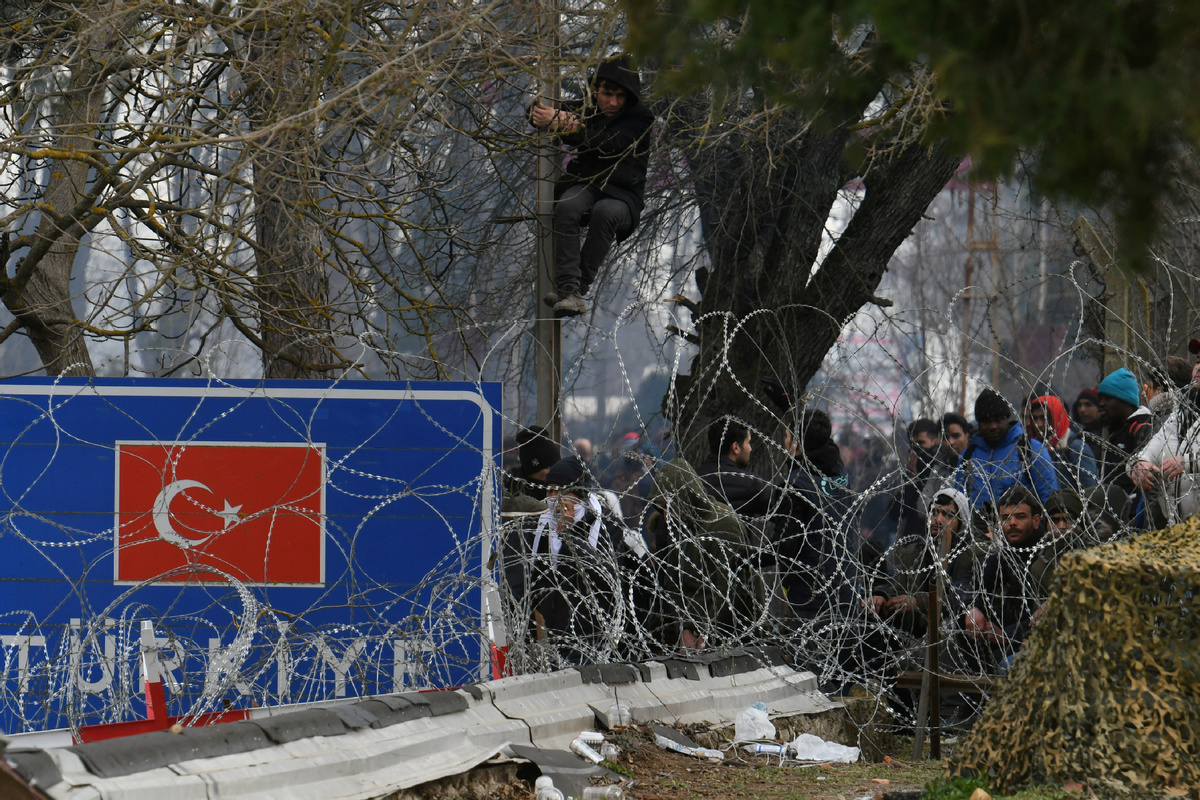Europe set to help Greece protect its border
By JULIAN SHEA in London | China Daily Global | Updated: 2020-03-05 09:54

Turkey's Erdogan optimistic over chances of Syria ceasefire in Idlib
The European Union has pledged 700 million euros ($779 million) of support to Greece and announced a European intervention force will be sent in to help after clashes at the country's frontier with Turkey, following the decision of Turkish authorities to give up preventing migrants, many from Syria, trying to get into the European Union.
Greece asked for help from the EU's border agency Frontex and border guards, air and sea support will be sent after Turkey went through with its threat to abandon a limit on EU-bound migrants agreed between Ankara and Brussels in 2016, because it wants guarantees the EU will continue to pay for the hosting of refugees in Turkey.
Figures published in November 2019 showed that there were more than 3.5 milllion registered Syrian refugees in Turkey.
On Wednesday the AFP news agency reported that Turkey claimed that a migrant had been killed at the border by Greek gunfire, with Greece "categorically "denying firing on migrants.
"This border is not only a Greek border but it is also a European border. And I stand here today as a European at your side," European Commission President Ursula von der Leyen told Greek Prime Minister Kyriakos Mitsotakis.
"Turkey is not an enemy and people are not just means to reach a goal. We would all do well to remember both in the days to come. I thank Greece for being our European 'aspida' (the Greek word for shield)," .
Some humanitarian groups seeking to help people in the area have criticized the tone of her comments.
"We've seen quite a lot of unhappiness with some of the language that's being used," said Euronews correspondent Jack Parrock in Brussels. "They are concerned that this is language that is not appropriate from the European Union when a lot of the people coming are obviously fleeing wars in Syria and in other places as well".
Some observers think Turkey's change of policy is down to the ongoing war in Syria, where recently 33 Turkish soldiers supporting the opposition were killed in airstrikes by Syrian government troops covered by Russian warplanes.
Speaking to journalists on Wednesday the day before he travels to Moscow, Turkish President Recep Tayyip Erdogan said he expects his talks with Russian President Vladimir Putin will lead to a swift ceasefire in the Idlib region.
























